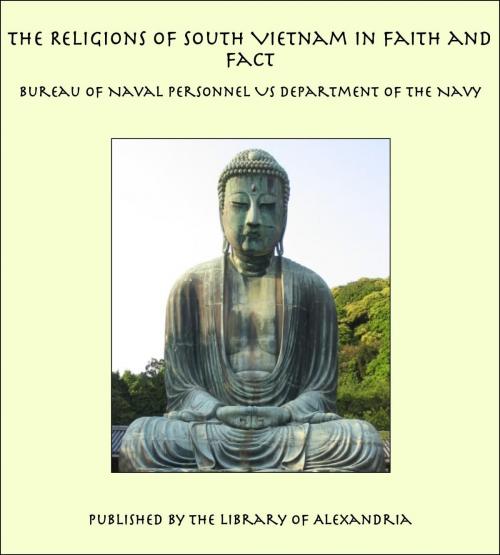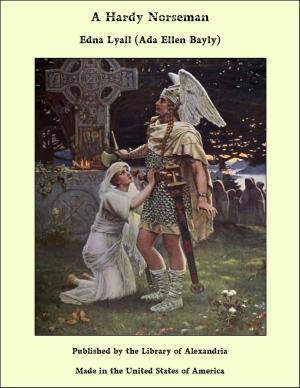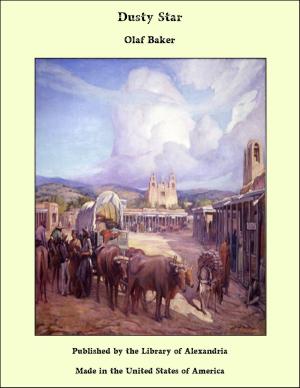The Religions of South Vietnam in Faith and Fact
Nonfiction, Religion & Spirituality, New Age, History, Fiction & Literature| Author: | Bureau of Naval Personnel US Department of the Navy | ISBN: | 9781465546777 |
| Publisher: | Library of Alexandria | Publication: | March 8, 2015 |
| Imprint: | Language: | English |
| Author: | Bureau of Naval Personnel US Department of the Navy |
| ISBN: | 9781465546777 |
| Publisher: | Library of Alexandria |
| Publication: | March 8, 2015 |
| Imprint: | |
| Language: | English |
Man's religious beliefs shape and control his cultural patterns and his educational, political, and economic institutions in both their theory and practice. From the earliest times for which there is reasonable historical insight, there is cumulative evidence that man's reasoning ability has consistently directed him to recognize the presence of a power, or powers, greater than himself. As man's mental capacities have increased, his awareness and understanding of the power have grown and been refined. Man has ordered his notions about this power into schemes of belief and life. Basically, religion is that ordering of man's life by a complex of notions about life which are so deeply held that all he does is governed by them. A society of peoples cannot adequately be understood, appreciated or influenced without awareness of just how these various religious beliefs and practices are involved in daily life. This is true whether it be of Americans or Vietnamese. Since the two peoples are of differing geographic locations and cultures, it is imperative that we Americans seek to understand our allies as unitedly we struggle against a common foe. As an American and a Vietnamese understand each other's value systems, taboos, and the other factors affecting daily life, there can develop a rapport or "cultural empathy" on a number of levels which can help promote better relationships between them. The ethnic Vietnamese by long tradition have philosophies and religious beliefs which declare man to be a part of nature. Man is subject to, and therefore subordinate to, nature so that harmony can be achieved only as man conforms to the natural world about him. By wrong thought or deed, man can disrupt nature, while by right deeds and thoughts he may create prosperity. An awareness of how these and similar concepts affect behavior and thought allows the American serviceman to be more understanding and more effective in his tour of duty in Vietnam
Man's religious beliefs shape and control his cultural patterns and his educational, political, and economic institutions in both their theory and practice. From the earliest times for which there is reasonable historical insight, there is cumulative evidence that man's reasoning ability has consistently directed him to recognize the presence of a power, or powers, greater than himself. As man's mental capacities have increased, his awareness and understanding of the power have grown and been refined. Man has ordered his notions about this power into schemes of belief and life. Basically, religion is that ordering of man's life by a complex of notions about life which are so deeply held that all he does is governed by them. A society of peoples cannot adequately be understood, appreciated or influenced without awareness of just how these various religious beliefs and practices are involved in daily life. This is true whether it be of Americans or Vietnamese. Since the two peoples are of differing geographic locations and cultures, it is imperative that we Americans seek to understand our allies as unitedly we struggle against a common foe. As an American and a Vietnamese understand each other's value systems, taboos, and the other factors affecting daily life, there can develop a rapport or "cultural empathy" on a number of levels which can help promote better relationships between them. The ethnic Vietnamese by long tradition have philosophies and religious beliefs which declare man to be a part of nature. Man is subject to, and therefore subordinate to, nature so that harmony can be achieved only as man conforms to the natural world about him. By wrong thought or deed, man can disrupt nature, while by right deeds and thoughts he may create prosperity. An awareness of how these and similar concepts affect behavior and thought allows the American serviceman to be more understanding and more effective in his tour of duty in Vietnam















